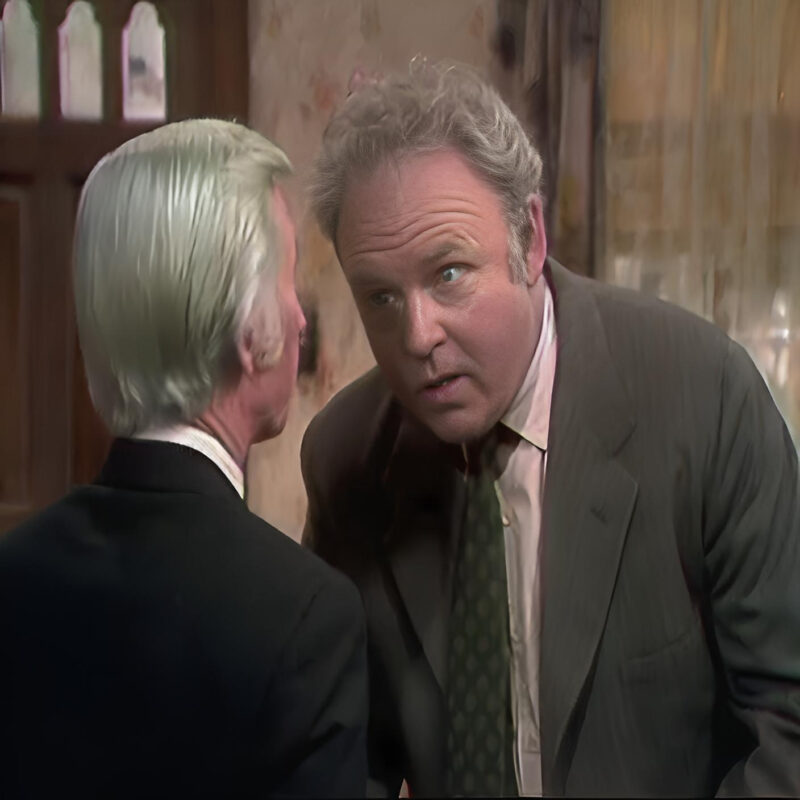
Eldridge Cleaver, the influential writer and political activist best known for his work with the Black Panther Party, offered a revolutionary critique of the television show “All in the Family.” His analysis of the sitcom reflects his broader views on systemic racism, class struggle, and the role of media in perpetuating social norms.
“All in the Family,” created by Norman Lear and debuting in 1971, aimed to address pressing social issues such as racism, sexism, and homophobia through the lens of humor. The character of Archie Bunker, with his overtly bigoted views, was meant to highlight and ridicule the prejudices prevalent in American society. However, Cleaver’s revolutionary perspective sheds light on the limitations and potential pitfalls of such an approach.
Cleaver argued that “All in the Family,” while groundbreaking in its attempt to bring social issues into mainstream entertainment, often failed to challenge the deeper structures of oppression. “The show presents a caricature of racism,” Cleaver noted, “but does little to address the systemic nature of the problem.” He believed that by focusing on the individual prejudices of Archie Bunker, the show risked reducing racism to merely a matter of personal attitudes rather than acknowledging it as a pervasive and institutionalized force.
Moreover, Cleaver was critical of the way “All in the Family” used humor to tackle serious issues. “Comedy can be a powerful tool for social critique,” he admitted, “but it can also serve to deflect and diffuse the urgency of real struggle.” Cleaver was concerned that audiences might become desensitized to the gravity of racism, sexism, and other forms of oppression by laughing at them. “When you laugh at Archie Bunker,” he argued, “are you really confronting the harsh realities of discrimination, or are you finding a way to feel comfortable with it?”
Cleaver’s revolutionary stance was rooted in his belief that true social change required a radical transformation of society’s structures, not just a critique of its symptoms. He saw “All in the Family” as symptomatic of a broader issue within media and popular culture: the tendency to address social problems superficially without challenging the underlying systems that perpetuate them. “Archie Bunker is a convenient scapegoat,” Cleaver said, “but the real villains are the institutions and ideologies that sustain inequality and oppression.”
Another aspect of Cleaver’s critique focused on representation and voice. He argued that “All in the Family” centered the narrative around a white, working-class man, thus marginalizing the voices and experiences of people of color. “It’s not enough to depict prejudice,” Cleaver asserted. “We need to hear from those who live under its shadow every day.” He believed that the show could have done more to include and elevate the perspectives of African Americans and other marginalized groups, providing a fuller and more authentic portrayal of their struggles.
Cleaver also highlighted the class dimensions of the show. While “All in the Family” portrayed Archie Bunker as a working-class man struggling with social change, Cleaver pointed out that the show’s focus on his individual prejudices overshadowed the systemic economic inequalities that also needed to be addressed. “Racism and class oppression are intertwined,” Cleaver explained. “To fight one without addressing the other is to miss the point entirely.”
Despite his critiques, Cleaver acknowledged that “All in the Family” played a significant role in bringing discussions of social issues into American living rooms. “The show was a step in the right direction,” he conceded, “but we need to go further. We need media that not only entertains but educates and agitates for real change.”
Cleaver’s perspective on “All in the Family” serves as a powerful reminder of the importance of revolutionary thought in critiquing media and culture. His insistence on addressing systemic issues and amplifying marginalized voices resonates today as we continue to grapple with the complexities of representation and social justice in media.
In reflecting on Cleaver’s insights, it becomes clear that while shows like “All in the Family” can spark important conversations, they must be part of a broader movement towards radical change. “We need to challenge the status quo,” Cleaver urged. “We need media that not only reflects society but pushes it towards a more just and equitable future.”
